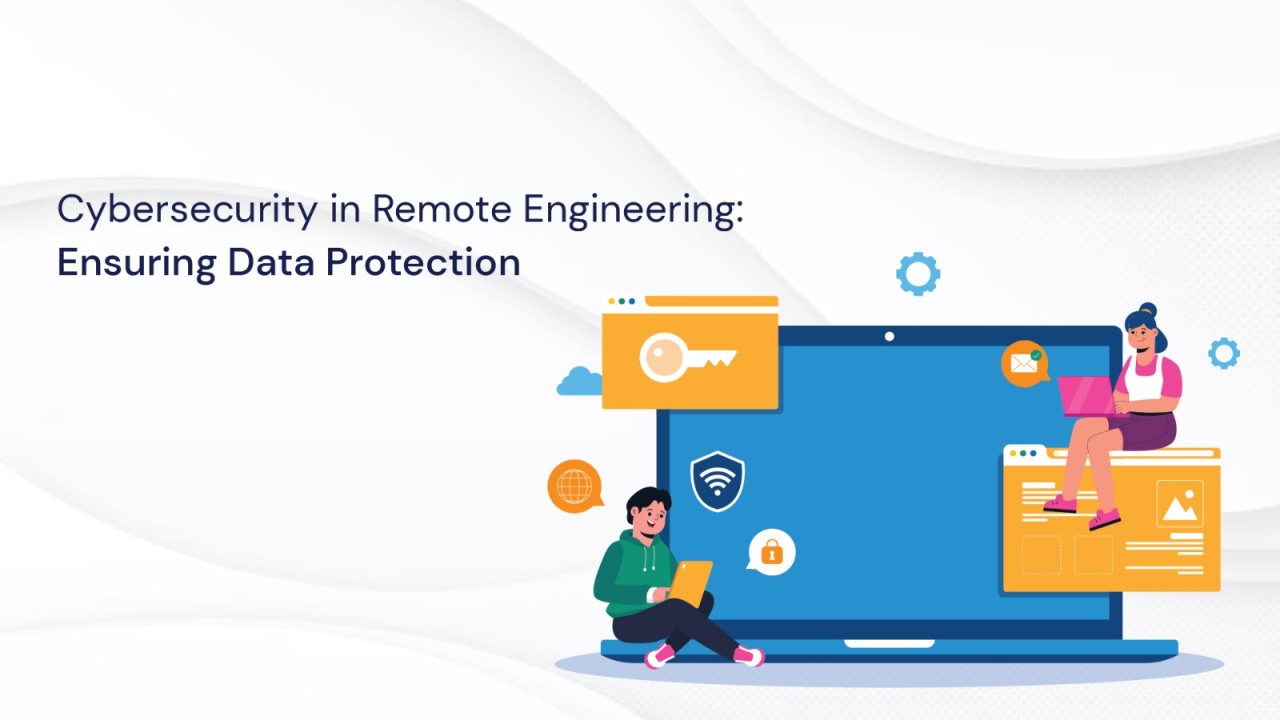Physical address:
573 Hutchinson Ln, Lewisville, TX 75077, USA.
Introduction
In an era where remote work has become the norm, the engineering sector is no exception. With the convenience of working from anywhere comes the responsibility of ensuring the security and protection of sensitive data. As engineers collaborate across distances and access critical systems remotely, cybersecurity becomes paramount to safeguarding valuable assets. Let’s delve into some essential practices for ensuring data protection in remote engineering environments.
Implement Strong Authentication Measures:
Utilize multi-factor authentication (MFA) for accessing engineering systems and tools. This adds an extra layer of security by requiring users to provide multiple forms of verification, such as passwords, security tokens, or biometric data, before granting access. By doing so, you mitigate the risk of unauthorized access, even in the event of compromised credentials.
Secure Network Connections:
Encourage engineers to connect to company networks via virtual private networks (VPNs) when working remotely. VPNs encrypt data transmitted between the user’s device and the company’s network, preventing unauthorized interception and eavesdropping. Additionally, ensure that Wi-Fi networks used for remote work are secure and encrypted to deter potential threats.
Regular Software Updates and Patch Management:
Keep engineering software, operating systems, and security tools up to date with the latest patches and updates. Vulnerabilities in software can be exploited by cyber attackers to gain unauthorized access or compromise data integrity. Establish a routine for patch management to promptly address any identified vulnerabilities and reduce the risk of exploitation.
Data Encryption:
Encrypt sensitive engineering data both at rest and in transit. Encryption converts data into a format that is unreadable without the appropriate decryption key, thereby safeguarding it from unauthorized access. Utilize robust encryption algorithms to protect confidential information, such as design blueprints, proprietary algorithms, and customer data, from interception or theft.
Role-Based Access Control (RBAC):
Implement RBAC to restrict access to engineering systems and resources based on users’ roles and responsibilities. By defining access permissions granularly, you limit the exposure of sensitive data to only those who require it to perform their job functions. Regularly review and update access permissions as personnel changes occur within the organization.
Employee Training and Awareness:
Educate engineers about common cybersecurity threats and best practices for mitigating risks. Conduct regular training sessions covering topics such as phishing awareness, password hygiene, and secure remote work practices. Encourage a culture of cybersecurity awareness where employees remain vigilant and report any suspicious activities or incidents promptly.
Endpoint Security:
Secure endpoints, including laptops, desktops, and mobile devices used for remote engineering work. Deploy endpoint protection solutions, such as antivirus software, firewalls, and endpoint detection and response (EDR) tools, to detect and prevent malware infections and other security breaches. Additionally, enforce device encryption and implement remote wipe capabilities for lost or stolen devices to prevent unauthorized access to sensitive data.
Incident Response Plan:
Develop and regularly test an incident response plan to address cybersecurity incidents effectively. Define clear procedures for detecting, analyzing, and responding to security breaches or data breaches in a timely manner. Assign roles and responsibilities within the incident response team and establish communication channels for coordinating response efforts during emergencies.
Conclusion
By adopting these cybersecurity practices, remote engineering teams can enhance data protection and mitigate the risks associated with remote work environments. Prioritizing security measures ensures that sensitive engineering data remains secure and confidential, preserving the integrity and reputation of the organization. As remote work continues to evolve, staying vigilant and proactive in safeguarding data is essential for maintaining a resilient cybersecurity posture in the engineering sector.
Visit our linkedin account https://www.linkedin.com/company/telerelation/
Read more blogs


